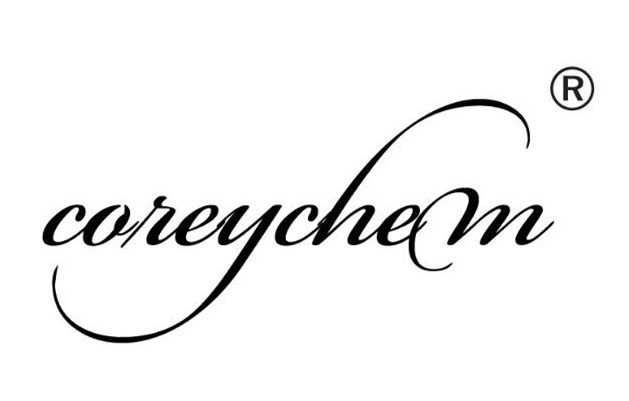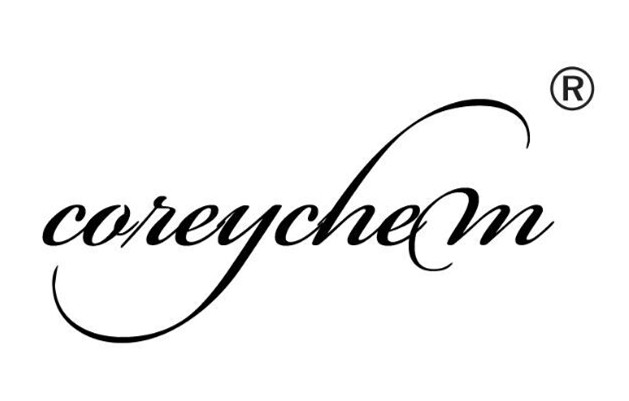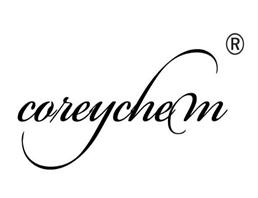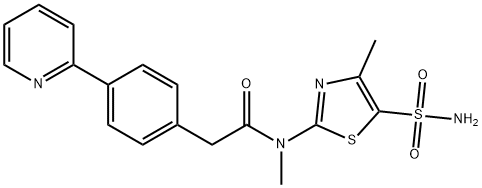| Enzyme inhibitor |
This antiviral (FW = 402.49 g/mol; CAS 348086-71-5), also named BAY 57-1293 and N-methyl-N-(4-methyl-5-sulfamoyl-1,3-thiazol-2-yl)-2-[4- (pyridin-2-yl)phenyl]acetamide, inhibits replication of herpes simplex virus (HSV) types 1 and 2 by blocking the enzymatic activity of the viral primase-helicase complex (IC50 ≈ 20 nM)). Although pritelivir is highly active against HSV-1 and superior to acyclovir in Vero cells, drug resistance has been detected in two different strains of HSV at 10-4 to 10-5, and resistant variants are present, even before the selection was applied. Resistant variants did not readily revert to a drug-sensitive phenotype in the absence of the inhibitor, and representative pritelivir-resistant variants were cross-resistant to BILS-22-BS, another helicase-primase inhibitor (HPI). Notably, variants resistant to BAY 57-1293 retained sensitivity to the nucleoside analogue, ACV. Two HSV-1 mutants, that are 100x and >3000x resistant to ritelivir, have substitutions in the UL5 helicase protein (e.g., one with A4V and K356Q mutations, and the other with a single G352R mutation). Marker transfer experiments confirmed that K356Q and G352R (near the predicted functional domain of HSV-1 helicase)) are the drug-resistance mutations that are directly associated with differences in virus growth in tissue culture. Moreover, to achieve maximum potency, pritelivir interacts with both components (UL5 and UL52) of the helicaseprimase complex, but BILS-22-BS does not. Herpes simplex type 1 (HSV1) infected cells form β-amyloid (Aβ) and abnormally phosphorylated Tau (P-Tau) in vitro, and pritelivir is more effective that acyclovir in preventing these Alzheimer-associated proteins. |

 China
China






